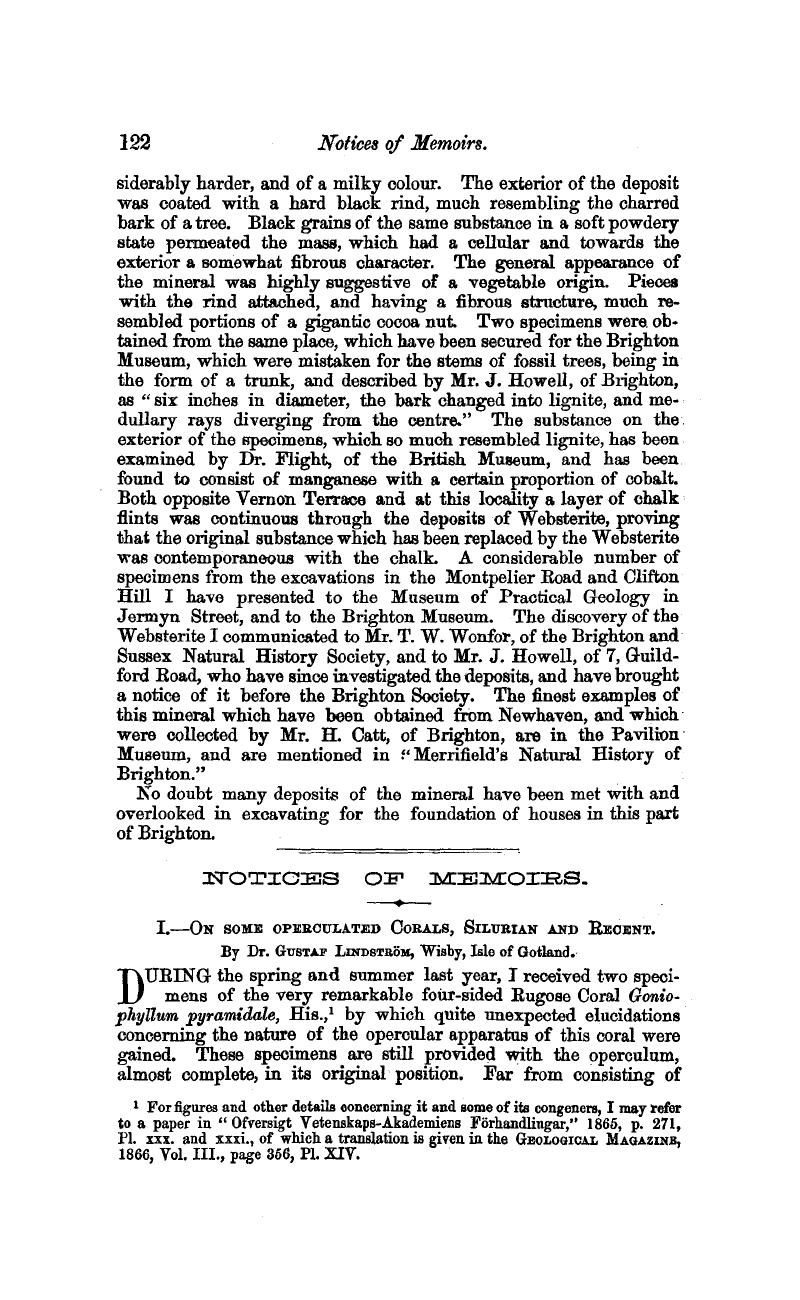Article contents
Notices of Memoirs
Published online by Cambridge University Press: 01 May 2009
Abstract

- Type
- Notices of Memoirs
- Information
- Copyright
- Copyright © Cambridge University Press 1871
References
page 122 note 1 For figures and other details concerning it and some of its congeners, I may refer to a paper in “ofversigt Vetenskaps-Akademiens Förhandlingar,” 1865, p. 271, PI. xxx. and xxxi., of which a translation is given in the Geological Magazine, 1866, Vol. III., page 356, Pl. XIV.
page 125 note 1 The authors of this species themselves doubt its belonging to the genus Cyathophyllum (Hist. Nat. Cor. III., p. 367, Brit. Foss. Corals, p. 280, pi. 66, fig. 2). In this they are quite right, as it doesnot in any way coincide with the species commonly considered as Uyathophylla. Its strange exothecal covering in scaly rows, its septa, its well-developed tabulæ, its double costæ, and the complete want of dissepimental structurebetween the septa, justify my forming a new genus out of it, which I propose to name Pholidophyllum. As it now stands, it contains onlya single species, Ph. Lovéini, which is found most abundantly in Gotland, and also in Russia (Oesel), Norway (Christiania), England (Dudley and other localities), N. America (Lake Huron, St. Joseph's Island). It occurs also in the Drift of Northern Germany, from whence Ludwig, in Palæontographica, vol. xiv., pi. 47, fig. 3, and pl. 51, fig. 4, has obtained it and named it Tœniocyathus and Tœniolepas spinosa.
page 127 note 1 The Mining Geologist to the Singhbhum Copper Company.
- 2
- Cited by


